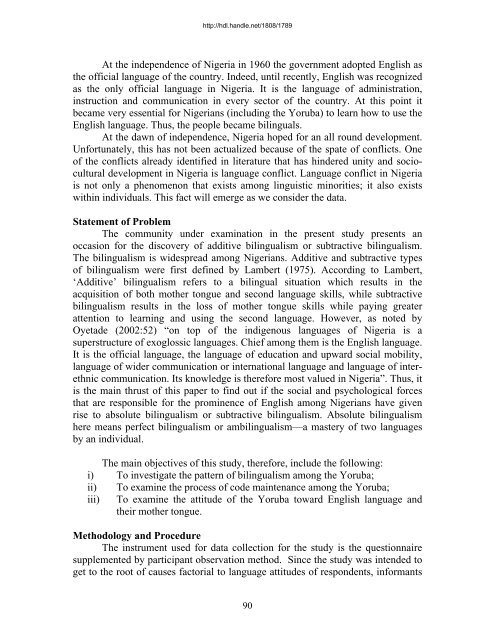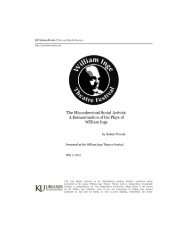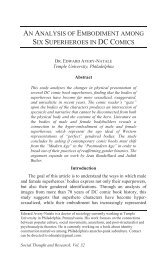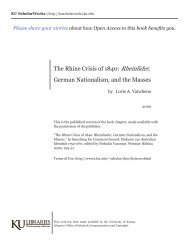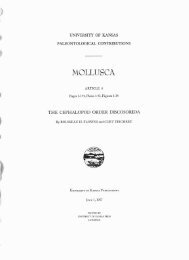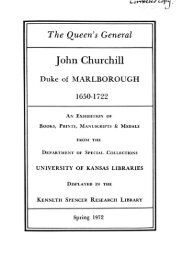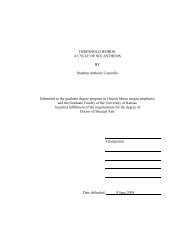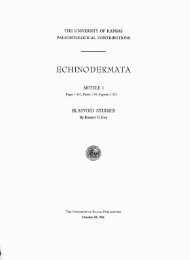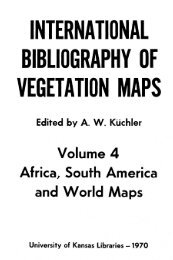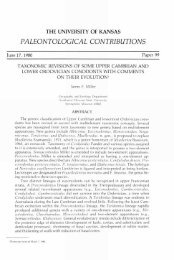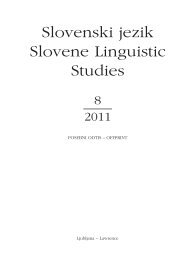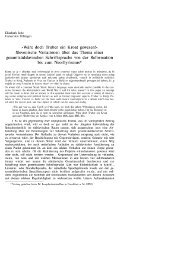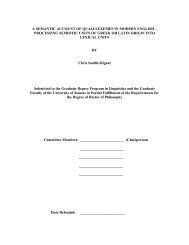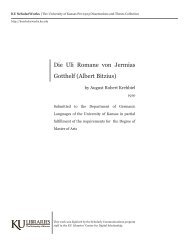LANGUAGE CONTACT AND LANGUAGE ... - KU ScholarWorks
LANGUAGE CONTACT AND LANGUAGE ... - KU ScholarWorks
LANGUAGE CONTACT AND LANGUAGE ... - KU ScholarWorks
Create successful ePaper yourself
Turn your PDF publications into a flip-book with our unique Google optimized e-Paper software.
http://hdl.handle.net/1808/1789<br />
At the independence of Nigeria in 1960 the government adopted English as<br />
the official language of the country. Indeed, until recently, English was recognized<br />
as the only official language in Nigeria. It is the language of administration,<br />
instruction and communication in every sector of the country. At this point it<br />
became very essential for Nigerians (including the Yoruba) to learn how to use the<br />
English language. Thus, the people became bilinguals.<br />
At the dawn of independence, Nigeria hoped for an all round development.<br />
Unfortunately, this has not been actualized because of the spate of conflicts. One<br />
of the conflicts already identified in literature that has hindered unity and sociocultural<br />
development in Nigeria is language conflict. Language conflict in Nigeria<br />
is not only a phenomenon that exists among linguistic minorities; it also exists<br />
within individuals. This fact will emerge as we consider the data.<br />
Statement of Problem<br />
The community under examination in the present study presents an<br />
occasion for the discovery of additive bilingualism or subtractive bilingualism.<br />
The bilingualism is widespread among Nigerians. Additive and subtractive types<br />
of bilingualism were first defined by Lambert (1975). According to Lambert,<br />
‘Additive’ bilingualism refers to a bilingual situation which results in the<br />
acquisition of both mother tongue and second language skills, while subtractive<br />
bilingualism results in the loss of mother tongue skills while paying greater<br />
attention to learning and using the second language. However, as noted by<br />
Oyetade (2002:52) “on top of the indigenous languages of Nigeria is a<br />
superstructure of exoglossic languages. Chief among them is the English language.<br />
It is the official language, the language of education and upward social mobility,<br />
language of wider communication or international language and language of interethnic<br />
communication. Its knowledge is therefore most valued in Nigeria”. Thus, it<br />
is the main thrust of this paper to find out if the social and psychological forces<br />
that are responsible for the prominence of English among Nigerians have given<br />
rise to absolute bilingualism or subtractive bilingualism. Absolute bilingualism<br />
here means perfect bilingualism or ambilingualism—a mastery of two languages<br />
by an individual.<br />
The main objectives of this study, therefore, include the following:<br />
i) To investigate the pattern of bilingualism among the Yoruba;<br />
ii) To examine the process of code maintenance among the Yoruba;<br />
iii) To examine the attitude of the Yoruba toward English language and<br />
their mother tongue.<br />
Methodology and Procedure<br />
The instrument used for data collection for the study is the questionnaire<br />
supplemented by participant observation method. Since the study was intended to<br />
get to the root of causes factorial to language attitudes of respondents, informants<br />
90


